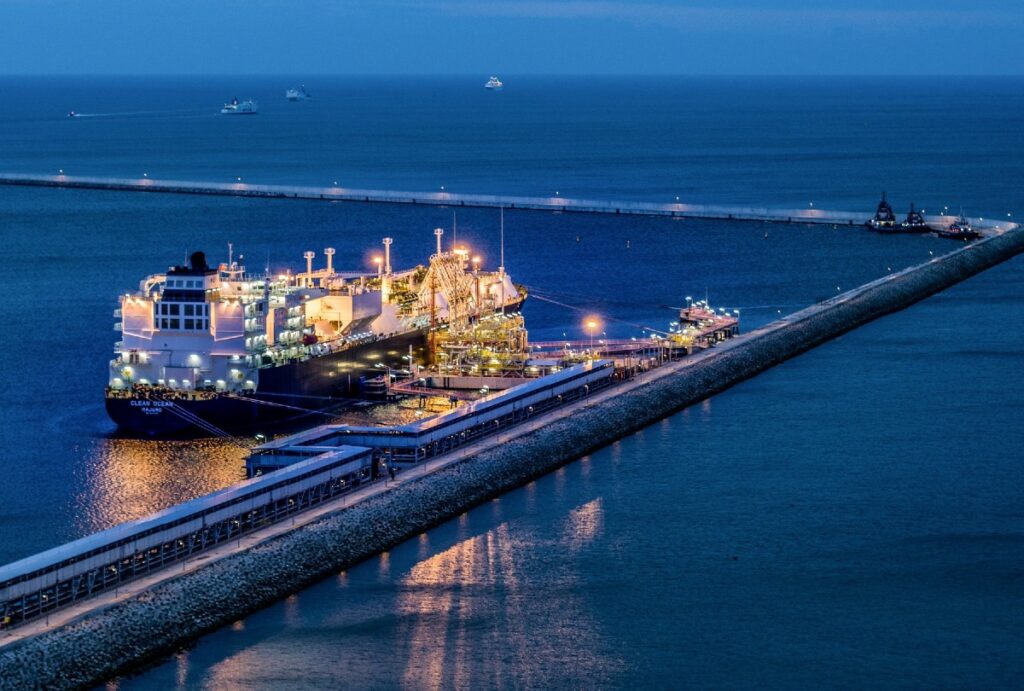
One of these is that countries seeking to cut a deal with Trump will try to purchase more U.S. goods in order to lower their trade surpluses with the United States.
The problem is that for many countries there is little that they want from the United States in terms of manufactured goods, and even relative success stories like Boeing aircraft serve to highlight the paucity of competitive U.S. goods.
But there is one area where countries can try and up their imports from the United States, and that’s energy commodities such as crude oil, liquefied natural gas (LNG) and coal.
The obvious problem is that if every country wanting to cut a deal with Trump commits to buying more U.S. energy, the United States will very soon run out of capacity to supply the demand.
This means that early movers may actually be the ones who secure energy supplies from the United States, and may gain some leverage in talks with the Trump administration.
Japan and South Korea are two such countries that may well try to buy more U.S. energy.
Both are major importers of crude, LNG and coal, both have wide trade surpluses with the United States and both are traditional U.S. allies, although whether this counts for anything with Trump remains uncertain.
But even if Japan and South Korea pivot to buying U.S. energy, will it make much difference to their trade balance with the United States?
Japan imported 12.44 million barrels of U.S. crude in 2024, which was about 1.6% of its total imports of 794.9 million barrels, according to data compiled by commodity analysts Kpler.
Assuming an average price of $70 a barrel for its imports, it means Japan spent $870.8 million on U.S. crude in 2024.
What would be the highest share of U.S. crude Japan could buy, given that it has long-term deals with its major suppliers like Saudi Arabia and the United Arab Emirates?
Japan also has to ensure that the grades of crude it purchases are suitable for processing in its refineries, and this will also be a limiting factor for U.S. imports.
If Japan was able to ramp up its purchases of U.S. crude to 10% of its total imports, this would amount to about 80 million barrels a year, which at the current price of around $60 for U.S. West Texas Intermediate would cost about $4.8 billion.
Japan’s trade surplus with the United States was $68 billion in 2024, so even massively increasing imports of U.S. crude would only have a small impact.
LNG, COAL
What about doing the same with LNG? Japan imported 6.5 million tons of U.S. LNG in 2024, or about 9.6% of its total of 67.43 million tons, according to Kpler.
Given the fairly large share of U.S. LNG already in Japan’s imports, it would be hard to significantly increase it.
But for argument’s sake, assume Japan can increase its share of U.S. LNG in its imports to 30%, or about 13.5 million tons.
At the current spot price of Asian LNG of $13 per million British thermal units, this would be worth about $9.13 billion, up from an assumed value of about $4.39 billion in 2024.
Again, this would help cut the trade surplus with the United States, but not dramatically.
Coal offers another avenue, with Japan importing 4.37 million tons from the United States in 2024, or about 2.8% of its total of 153.73 million.
But importing coal from the United States involves higher costs than Japan’s current top suppliers of Australia and Indonesia, given the longer shipping distances from the U.S. east coast.
There is also capacity constraints on U.S. coal exports, so its questionable as to how much more could realistically be supplied.
Japan also mainly buys metallurgical coal from the United States, and it would be challenging from a supply perspective to ramp up imports of this grade, meaning that any increase would largely be thermal coal.
If Japan could increase its share of U.S. coal to 10% of its imports, this would be worth about $1.5 billion, based on a thermal coal price of $100 a ton, in other words a tiny part of the overall trade surplus with the United States.
Overall, even if countries like Japan ramped up their imports of U.S. energy commodities, it would make only a small dent in their trade surplus with the United States.
And U.S. energy exporters would also rapidly run out of capacity if several major importers all try the same tactic simultaneously.
The views expressed here are those of the author, a columnist for Reuters.
(By Clyde Russell; Editing by Christopher Cushing)
Share This:




 CDN NEWS |
CDN NEWS |  US NEWS
US NEWS 


























